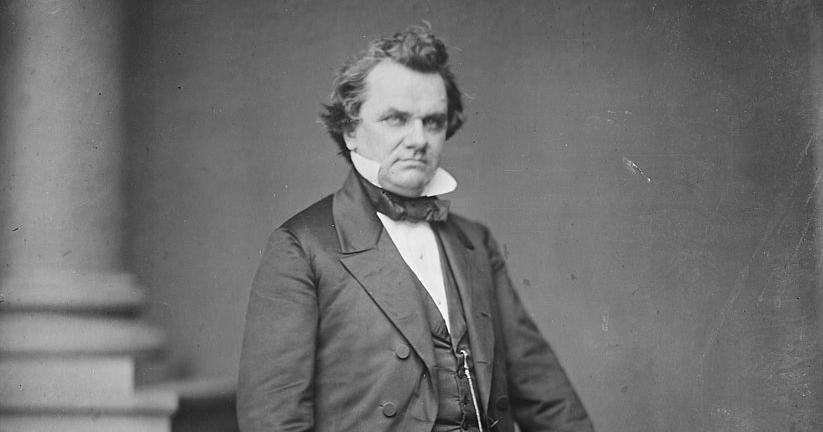So I can not prove he threw the election toward Lincoln but it is clear he stopped campaigning against Lincoln and promoted the Union. I like to argue, that he became a surrogate indirectly for Lincoln.
The campaign that followed witnessed none of the candidates except Douglas on the public stump. Breckinridge gave only one speech, Bell said nothing, and Lincoln, in keeping with campaign traditions, stayed at home in Springfield receiving delegations who came to pay their respect. Douglas, on the other hand, broke with tradition and campaigned all over the nation. He traveled from New England to the Deep South, shaking hands and giving speeches. Most of his appearances, to his dismay, were peppered with questions about what would happen should Lincoln be elected. In answering, he always affirmed the President's duty to enforce the laws. By October, concluding that the election was lost to Lincoln, Douglas began urging people to reject secession and work within the system.




